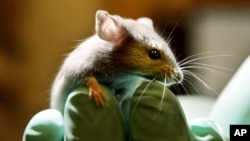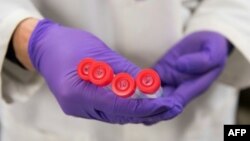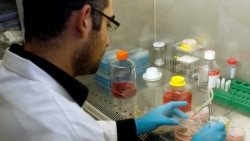A Japanese researcher says the government has approved experiments that aim to grow human organs in animals.
Scientist Hiromitsu Nakauchi recently confirmed the approval to Japan’s Asahi Shimbun newspaper. Nakauchi leads a research team at the Institute of Medical Science of the University of Tokyo. He also heads a stem cell research center at Stanford University in California.
Nakauchi’s research centers on creating animal embryos that contain human cells. His team sought approval to grow human cells in animal embryos and then implant them into the uterus of animals.
The goal of the research is to use animals to grow full-grown organs that could be used in human medical treatments. If successful, such organs could fill a great need for humans who need organ replacement operations.
However, such experiments have been criticized by some scientists who have expressed concerns over ethics. Until this year, the Japanese government had banned the experimental growth of animal embryos with human cells for longer than 14 days. Officials were concerned that further research could lead to the birth of creatures with a mix of animal and human genes.
But the journal Nature reported Japan’s science ministry lifted that ban in March. It said the ministry had closely examined the issue and sought expert scientific guidance. That decision permits Nakauchi’s team to grow full organs. Nakauchi will start with an experiment to grow human pancreas organs in animals such as mice and rats, the Asahi Shimbun reports.
“Finally, we are in a position to start serious studies in this field after 10 years of preparation,” Nakauchi told the newspaper. He said the approval in Japan will permit his team to bring forward the research “based upon the know-how we have gained up to this point.”
But he added: “We don’t expect to create human organs immediately.”
Nature noted that while human-animal embryos have been created in the United States and elsewhere, they have not yet been fully brought to term. The U.S. permits this kind of research, Nature reported, but the National Institutes of Health (NIH) has banned financing for such experiments since 2015.
Nakauchi’s team plans to engineer embryos that are not able to grow their own pancreases. Human stem cells would be added to the embryos in an effort to get them to develop pancreases from the cells. The embryos would then be injected into the animals, with the hope that a human-cell pancreas will grow.
If the experiments are successful, researchers hope to someday grow human-sized organs in larger animals like pigs and sheep.
The Asahi Shimbun reports the new guidelines require researchers to take necessary steps to prevent the birth of a human-animal combination. Nakauchi said these guidelines will be followed, and claimed the experiments are controlled to prevent such research results.
He told Nature his methods will involve “targeted organ generation.” For example, he said the human cells will only be designed to affect the pancreas, not other organs or parts.
Nakauchi added: “The number of human cells grown in the bodies of sheep is extremely small, like one in thousands or one in tens of thousands.” At that level, he said “an animal with a human face will never be born.”
I’m Bryan Lynn.
Bryan Lynn wrote this story for VOA Learning English, based on reports from Nature and the Asahi Shimbun. Caty Weaver was the editor.
What are your thoughts on these experiments involving human cells and animals? Write to us in the Comments section, and visit our Facebook page.
________________________________________________________________
Words in This Story
ethics – n. ideas and beliefs about what type of behavior is morally right and wrong
journal – n. a periodical dealing especially with matters of current interest
know-how – n. knowledge of how to do something smoothly and efficiently
brought to term – phr. carry out fully; completed








